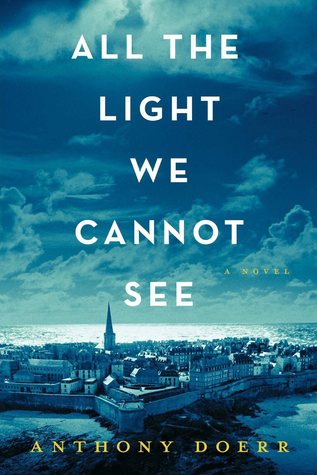Marie-Laure lives with her father in Paris near the Museum of Natural History, where he works as the master of its thousands of locks. When she is six, Marie-Laure goes blind and her father builds a perfect miniature of their neighborhood so she can memorize it by touch and navigate her way home. When she is twelve, the Nazis occupy Paris and father and daughter flee to the walled citadel of Saint-Malo, where Marie-Laure’s reclusive great-uncle lives in a tall house by the sea. With them they carry what might be the museum’s most valuable and dangerous jewel.
In a mining town in Germany, the orphan Werner grows up with his younger sister, enchanted by a crude radio they find. Werner becomes an expert at building and fixing these crucial new instruments, a talent that wins him a place at a brutal academy for Hitler Youth, then a special assignment to track the resistance. More and more aware of the human cost of his intelligence, Werner travels through the heart of the war and, finally, into Saint-Malo, where his story and Marie-Laure’s converge.
Comment: I had this book in my TBR list but I confess I was not thinking of reading it in the near future but I was recently at my local library and there it was so...I guess it just felt like a good moment to pick it and since I had a deadline of course I didn't waste much time reading it.
This book is very famous, it has won several awards and prizes and many people have read it. Basically, the plot revolves about World War II and how people were affected by it, namely two young ones, from different parts of the world but whose lives cross at one single moment and that changes them both.
Marie-Laure is a french girl whose father needs to leave Paris when the Germans get close and Werner is a young orphan boy that has a golden opportunity to change his life but can he put all his care and wishes behind?
I suppose most readers of this book have amazing things to say about its content and how powerful it can be. I also assume most books centered in or about the themes connected with WWII would be so, considering what we know about the subject. I also think this was quite emotional but it didn't touch me as deeply as other books. To me, what makes this book so amazing is the way we are told about certain things and the obvious amount of detail the author had to analyze to end up with a very fluid story.
In terms of writing, this was a good book for me. I didn't know the author's work but the approach used here was a positive one, I'd say, especially because the graphic layout of the written content are was appealing to readers: having small chapters and switching between Werner and Marie-Laure's perspectives on their lives was a good way to make this book easy to read and not simply a boring and extensive text.
The content has its moments. We have three main situations happening, the character's singular lives, the search for a special valuable rock and the historical context we always need to bar in mind.
All aspects combine themselves at the end and I think until the last three chapters or so, everything felt useful for the plot and the emotional aspect. The final chapters show some situations into the future, after the major storyline is concluded but for me this was probably the weakest part of the story, I just didn't read it from such an emotional POV as I think it could have been seen.
Marie-Laure is quite the heroine through her teenage years, while Europe is at war. I liked her a lot as a character, she did so many hard choices but she is easy to like and to root for.
For me, the best thing about this book was Werner's character. I felt he was the one who had more to change in his life, he learned some very difficult lessons and through him we could see a side that most historians and even novelists don't usually touch when working on WWII: the side of the common Germans who actually had way to fight what was happening but were immediately and easily labeled as something they abhorred themselves. It's always easier to talk when we are not the ones living it.
The writing itself is very easy to describe, I think most readers could easily imagine the descriptions used, especially when it comes to the more subjective details and metaphors. There's beauty in almost everything if only we look for it. The author also included lots of technical stuff which I can't really talk about.
The characters are all very special, even the "bad ones" have something in them one could exploit emotionally. But yes, it's easy to pick a side. Some details are truly powerful and from a a reader's POV, this can be seen as entertaining and emotional story. For me, it just could have been more and the end different somehow.
Grade: 8/10

No comments:
Post a Comment